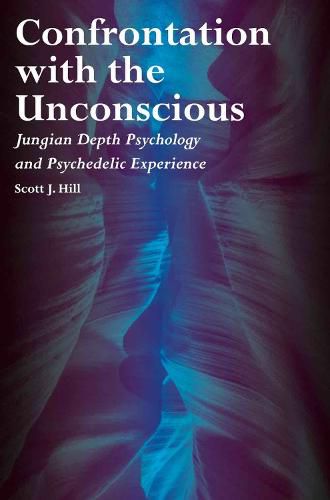Readings Newsletter
Become a Readings Member to make your shopping experience even easier.
Sign in or sign up for free!
You’re not far away from qualifying for FREE standard shipping within Australia
You’ve qualified for FREE standard shipping within Australia
The cart is loading…






Carl Gustav Jung pioneered the transformative potential of the deep unconscious. Psychedelic substances provide direct and powerful access to this inner world. How, then, might Jungian psychology help us to better understand the nature of psychedelic experiences? And how might psychedelics assist the movement toward psychological transformation described by Jung? Jungian depth psychology and psychedelic psychotherapy are both concerned with coming to terms with unconscious drives, complexes, and symbolic images. Unaware of significant evidence for the safe clinical use of psychedelic drugs, Jung himself remained wary of psychedelics and staunchly opposed their therapeutic use. His bias has prevented Jungians from objectively considering the benefits as well as the risks of using psychedelics for psychological healing and growth. Confrontation with the Unconscious intertwines psychedelic research, personal accounts of psychedelic experiences, and C. G. Jung’s work on trauma, the shadow, psychosis, and psychospiritual transformation - including Jung’s own confrontation with the unconscious - to show the relevance of Jung’s penetrating insights to the work of Stanislav Grof, Ann Shulgin, Ronald Sandison, Margot Cutner, among other psychedelic and transpersonal researchers, and to demonstrate the great value of Jung’s penetrating insights for understanding difficult psychedelic experiences and promoting safe and effective psychedelic exploration and psychotherapy.
$9.00 standard shipping within Australia
FREE standard shipping within Australia for orders over $100.00
Express & International shipping calculated at checkout
Carl Gustav Jung pioneered the transformative potential of the deep unconscious. Psychedelic substances provide direct and powerful access to this inner world. How, then, might Jungian psychology help us to better understand the nature of psychedelic experiences? And how might psychedelics assist the movement toward psychological transformation described by Jung? Jungian depth psychology and psychedelic psychotherapy are both concerned with coming to terms with unconscious drives, complexes, and symbolic images. Unaware of significant evidence for the safe clinical use of psychedelic drugs, Jung himself remained wary of psychedelics and staunchly opposed their therapeutic use. His bias has prevented Jungians from objectively considering the benefits as well as the risks of using psychedelics for psychological healing and growth. Confrontation with the Unconscious intertwines psychedelic research, personal accounts of psychedelic experiences, and C. G. Jung’s work on trauma, the shadow, psychosis, and psychospiritual transformation - including Jung’s own confrontation with the unconscious - to show the relevance of Jung’s penetrating insights to the work of Stanislav Grof, Ann Shulgin, Ronald Sandison, Margot Cutner, among other psychedelic and transpersonal researchers, and to demonstrate the great value of Jung’s penetrating insights for understanding difficult psychedelic experiences and promoting safe and effective psychedelic exploration and psychotherapy.